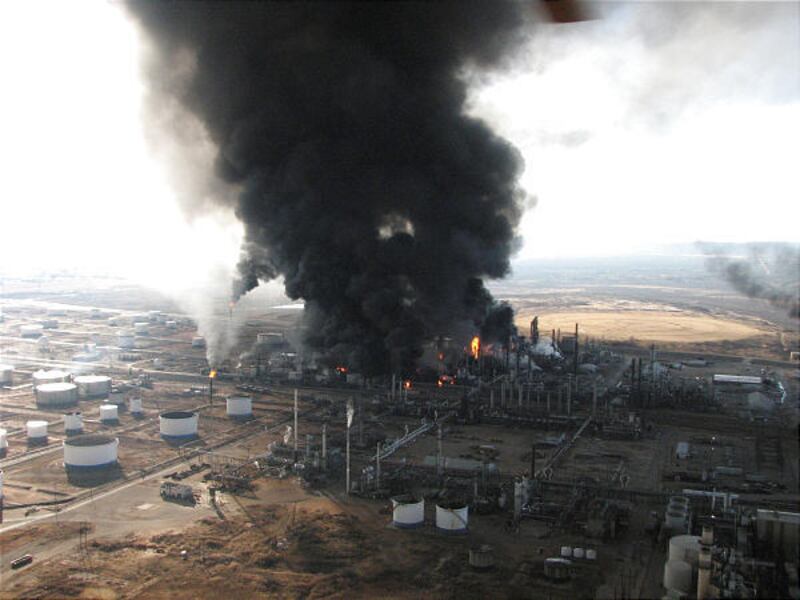NEW YORK — Oil futures shot higher Tuesday, closing above $100 for the first time as investors bet that crude prices will keep climbing despite evidence of plentiful supplies and falling demand.
At the pump, gas prices rose further above $3 a gallon.
There was no single driver behind oil's sharp price jump. Investors seized on an explosion at a 67,000-barrel-per-day refinery in Texas, the falling dollar, the possibility that OPEC may cut production next month, the threat of new violence in Nigeria and continuing tensions between the United States and Venezuela.
The lack of an overriding reason for such a price spike could be a bad omen for consumers already bearing the burdens of high heating costs and falling real-estate values. Many recent forecasts have said oil-demand growth this year will be less than initially expected, yet prices continue to rise. That suggests they may continue rising as the weakening dollar attracts new investors to the futures market.
Rising oil prices mean higher gas prices.
"As the economy weakens, it's going to be met with $3.50 and $3.60 gasoline," said James Cordier, founder of OptionSellers.com, a Tampa, Fla., trading firm. "And that really spells trouble for the consumer."
Light, sweet crude for March delivery rose $4.51 to settle at a record $100.01 a barrel on the New York Mercantile Exchange after earlier rising to $100.10, a new trading record. It was the first time since Jan. 3 that oil had been above $100.
Oil prices are still within the range of inflation-adjusted highs set in early 1980. Depending on how the adjustment is calculated, $38 a barrel then would be worth $96 to $103 or more today.
Crude futures offer a hedge against a falling dollar, and oil futures bought and sold in dollars are more attractive to foreign investors when the greenback is falling.
At the pump, meanwhile, gas prices jumped 1.8 cents to a national average price of $3.03 a gallon Tuesday, according to AAA and the Oil Price Information Service. Retail prices, which typically lag the futures market, are following oil prices higher. The Energy Department and many analysts expect gas prices to peak this spring well above last May's record of $3.23 a gallon.
Gasoline and heating oil prices appeared to lead Tuesday's wide advance in energy prices due to the explosion Monday at Alon USA's Big Spring, Texas, refinery, which could be shuttered for two months.
"The refinery fire in Texas is making people a little concerned," said Michael Lynch, president of Strategic Energy & Economic Research Inc. in Amherst, Mass.
March gasoline jumped 10.93 cents to settle at a record $2.60 a gallon, and March heating oil rose 11.45 cents to settle at $2.76 a gallon, also a record.
A threat by a rebel group in Nigeria to escalate attacks on the nation's crude oil infrastructure helped boost oil prices. The rebels were acting in response to rumors that the government had killed a captured leader, whom authorities later said was safe and well. Militant attacks have cut about 20 percent of Nigeria's crude output in recent years.
For the moment, investors appear to have put aside concerns about the economy that have sent oil prices down into the mid-$80 range twice in the last month. Traders are instead focused on the Organization of Petroleum Exporting Countries, which will meet early next month to map out production plans, and Venezuela, where President Hugo Chavez made conflicting statements this weekend about the country's legal dispute with Exxon Mobil Corp.
OPEC could move to cut production in the second quarter, typically a period of low demand, though many analysts feel that's unlikely. In Venezuela, Chavez said he was not serious about an earlier threat to cut oil sales to the United States, but also threatened to sue Exxon Mobil. The world's largest oil company is fighting Venezuela's nationalization of an oil project, and recently convinced several courts to freeze $12 billion in Venezuelan oil assets.

